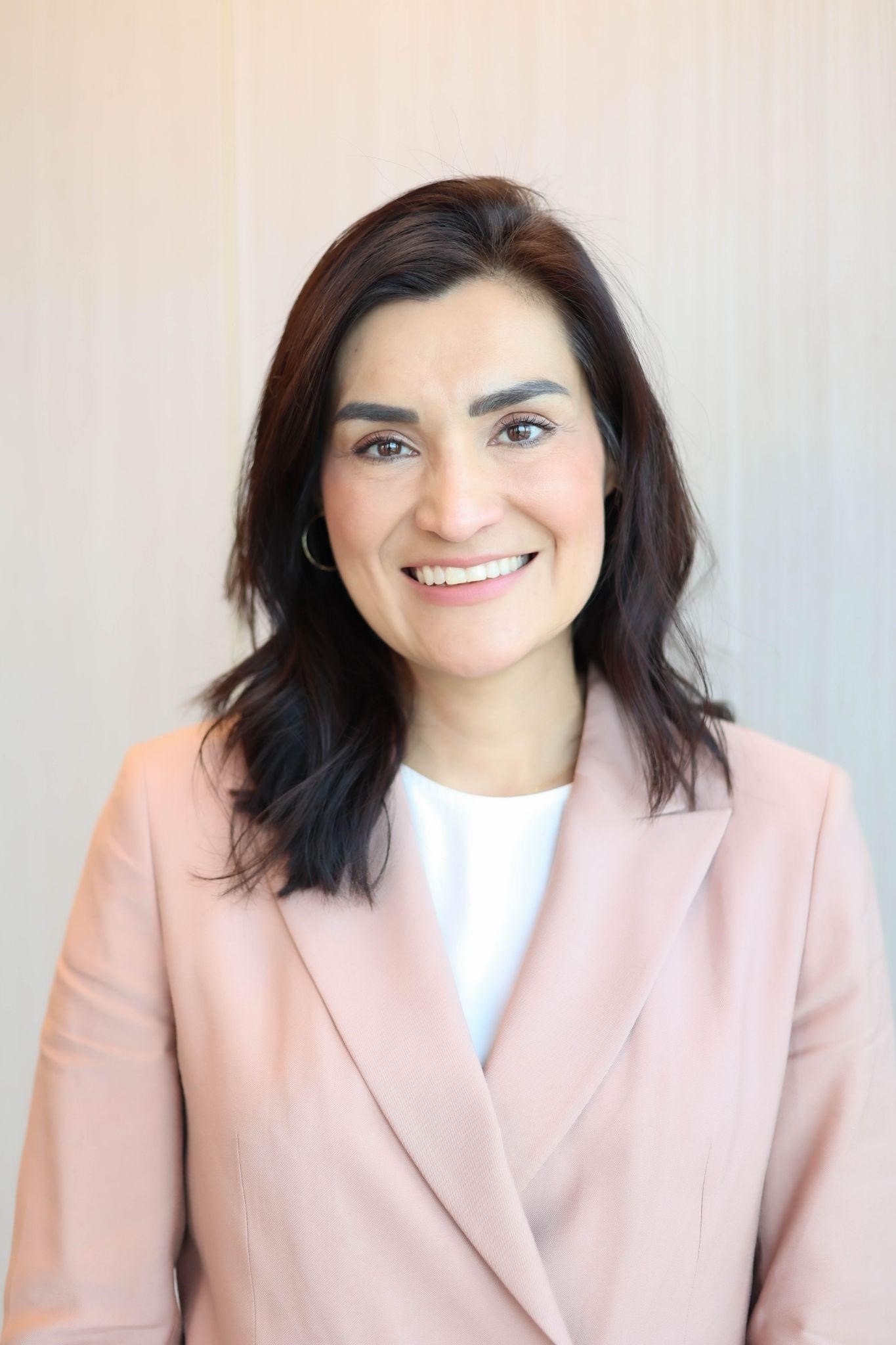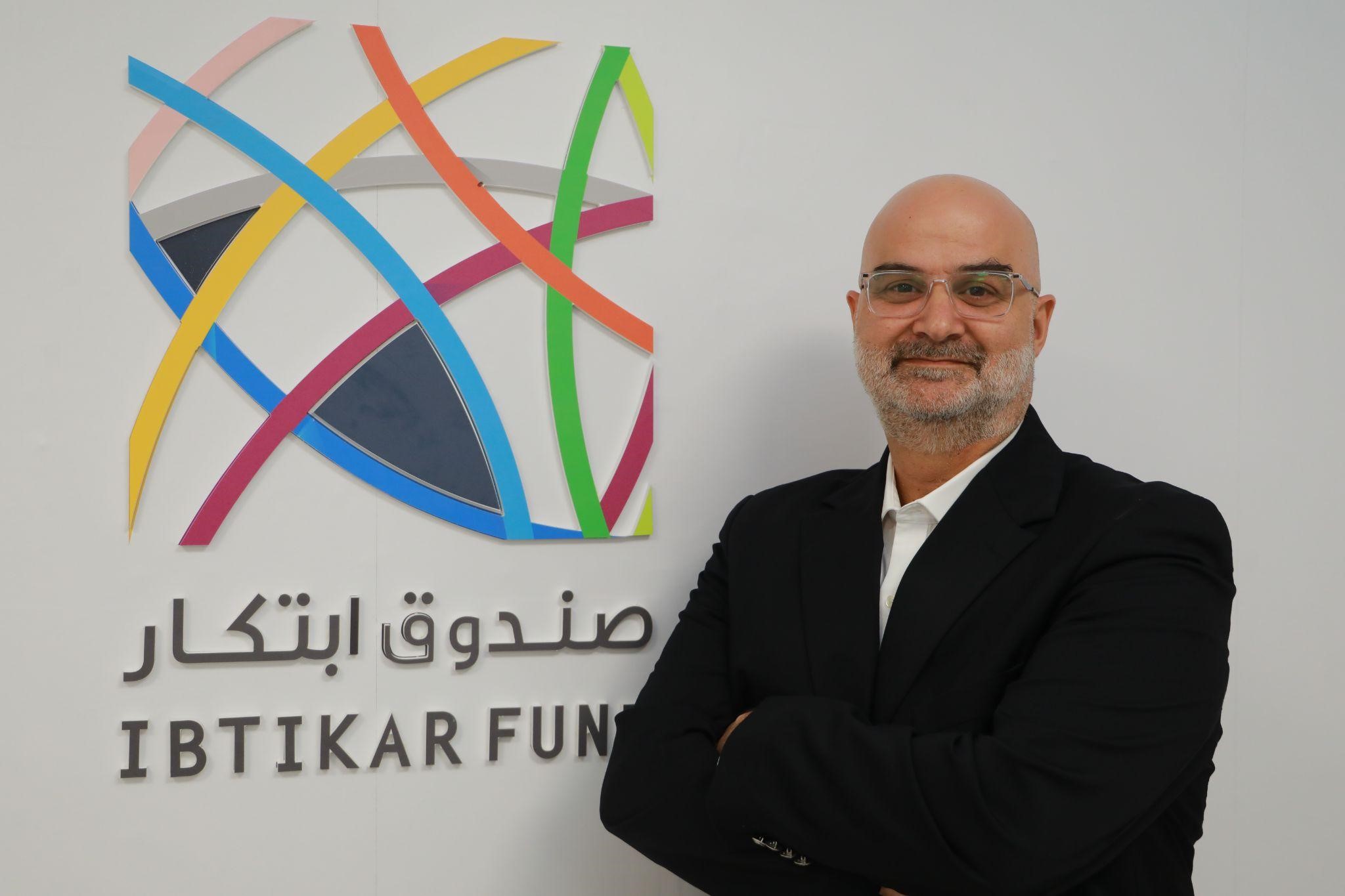Co-founders Ambar Amleh and Habib Hazzan are visionaries for change, working to uphold a fundamental component of Palestinian society – one that embodies an unwavering commitment to economic recovery amidst an unprecedented geopolitical landscape.

Ambar Amleh, co-founder of the Ibtikar Fund
Ambar is a first-generation American, born in Los Angeles and raised in Tijuana, Mexico till the age of eleven. Upon graduating with a degree in marketing from Arizona State University, she began working for banks like M&I Bank, Bank of America, and Wells Fargo. She then achieved an MBA qualification from Thunderbird. She was soon led to the region of Palestine as she embarked on an NGO project to assist women running for office; training them on effective campaign methods and governance practices, once elected. In 2018, Ambar was selected to join Kauffman Fellows—a highly competitive fellowship program where she entered as the second woman from the MENA region.
Cultivating an extensive range of experience in the NGO space, Ambar participated in the launch of Palestine for a New Beginning—an organization with a core focus on advancing economic opportunity for Palestinian youth. Following this work, Ambar helped manage FastForward, an organization recognized as the first accelerator in Palestine. Since relocating to the region and continuing her immeasurable efforts toward personal and societal growth, she began culminating all that she learned to help coin the revolutionary idea behind Ibtikar Fund.
Ambar adds, “If we continue to believe in the future of the region, we can proceed in our mission to propel the existing pool of talented Palestinian entrepreneurs. Our impact transcends economic development and seeks to instill hope in a community in need of foundationary support.”

Habib Hazzan, co-founder of the Ibtikar Fund
Accompanying Ambar is fellow co-founder Habib Hazzan. From the Palestinian city of Nazareth, Habib was born to a family of school teachers who were among the first Palestinians to gain access to higher education within Israeli Universities. Habib followed suit and graduated in law from the Hebrew University of Jerusalem. Habib practiced law for several years amidst the establishment of the Palestinian Authority and played an active role in setting up many of the corporations and holding companies that remain cornerstones of the Palestinian economy today. He was later granted a Fulbright scholarship to pursue an MBA from Emory Goizueta Business School and began a career in consulting at IBM, where he traveled across America and China.
Upon moving back to Palestine, Habib began working at Adam Smith International where he supported the Palestinian negotiating team in numerous economic developments. He participated in bilateral negotiations with the state of Israel, including matters of trade, electricity, and multilateral international projects with Jordan and the World Bank. Habib represents the groundbreaking potential of Palestinian professionals, as he became the first Arab to be accepted at McKinsey in Tel Aviv – standing as a project leader for strategy studies. Utilizing his growing network, he established a coalition of NGOs that worked to create equal employment opportunities for Palestinian citizens in Israeli corporations.
In 2009, Habib co-founded one of the first VC firms in the Middle East that catered to Arab entrepreneurs; cultivating a portfolio that included many of MENA’s first internet companies in medical information, e-books, travel, and well-being. Habib’s work within the economic landscape helped to introduce concepts of VC investing into the Arab markets, contributing to ecosystem building and the transfer of valuable knowledge to founders and entrepreneurs across the MENA region.
By 2015, Ambar and Habib combined their expertise to establish the Ibtikar Fund as it is known today. Inspired by the Arabic word for innovation, Ibtikar Fund provides transformational funding opportunities to Palestinian enterprises at their earliest stages. Ambar underscores, “What I saw was an array of businesses that were put through an accelerator but had no way to grow thereafter. Angel activity was practically non-existent and there was only one other fund available that offered funding at a much later stage. Ibtikar Fund came about to close an increasingly critical early-stage funding gap.”
On a social level, the fund plays a vital role in instilling hope for a prosperous economic future for the people of Palestine. Habib aptly shares his commentary on the remarkable personalities he interacts with through his work at Ibtikar Fund. He states, “We work with startups and entrepreneurs who may have to overcome extraordinary odds to excel in their companies, representing something so natural and identifiably Palestinian. It’s deeply embedded within us, in our identity and whole being, to create our own future with whatever resources we have available. We believe in ourselves and the Ibtikar Fund stands today because of this very belief.”

